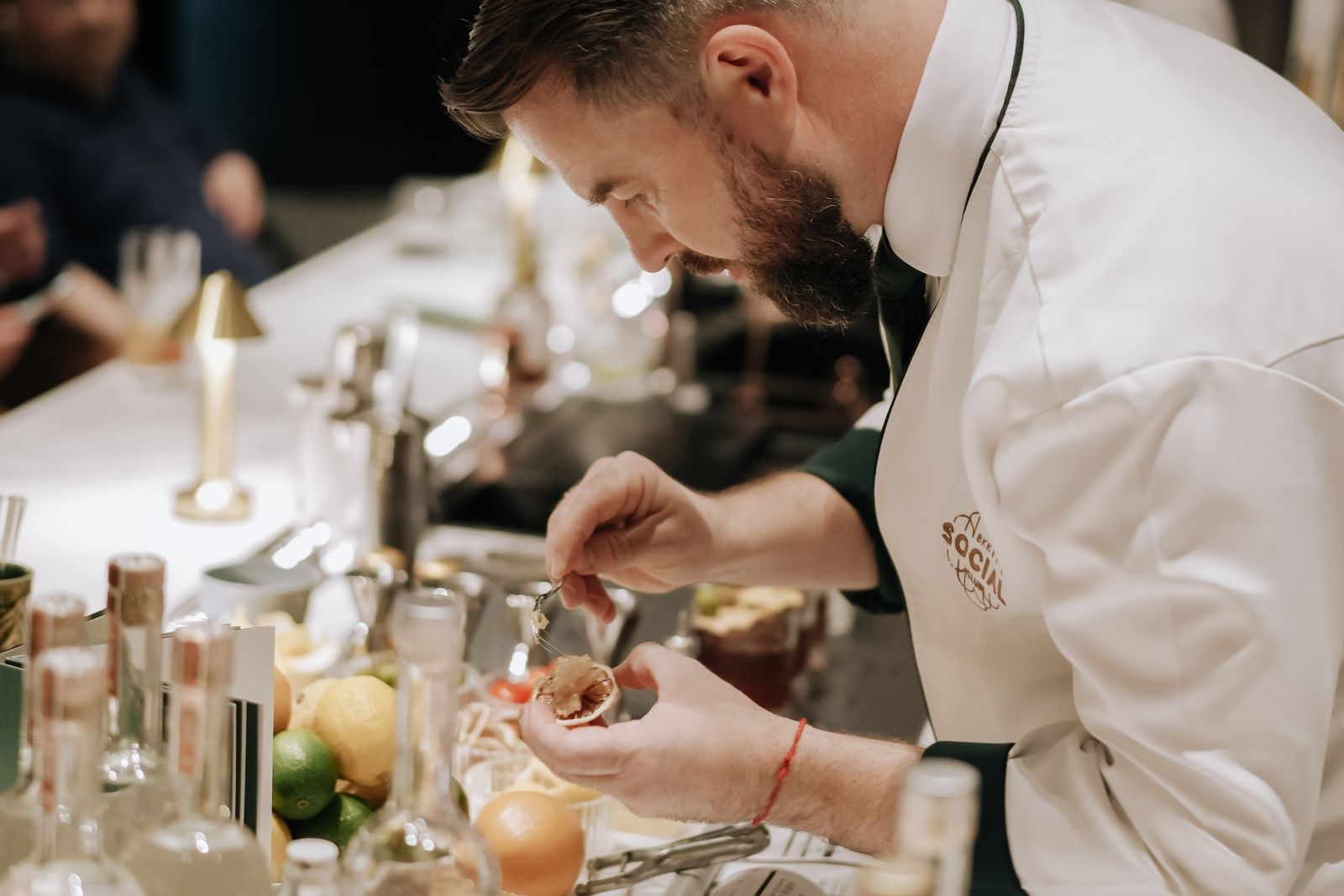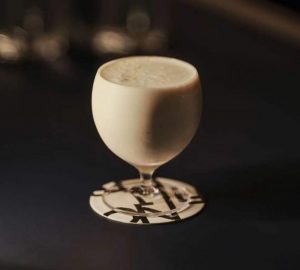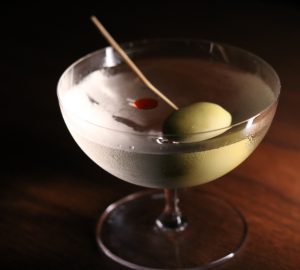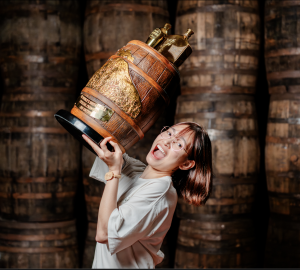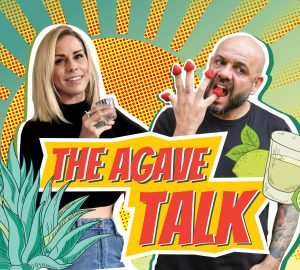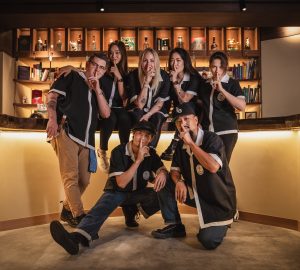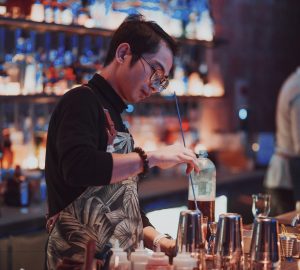A good long talk with Philip Bischoff in Suzhou. By Shu Mi.
Philip Bischoff is one of the most recognized names in Asia’s bar scene. Born and raised in Berlin, he studied health management before developing an interest in hospitality in his early twenties. After working behind the bar at all sorts of events and in a small local club, he earned himself a spot at the famous Felix Club at Hotel Adlon in his home city. And from there, his career as a bartender became unstoppable. He went on to work in Switzerland and then returned to Germany to tend bars, most notably at Le Lion in Hamburg and Hotel Amano in Berlin.
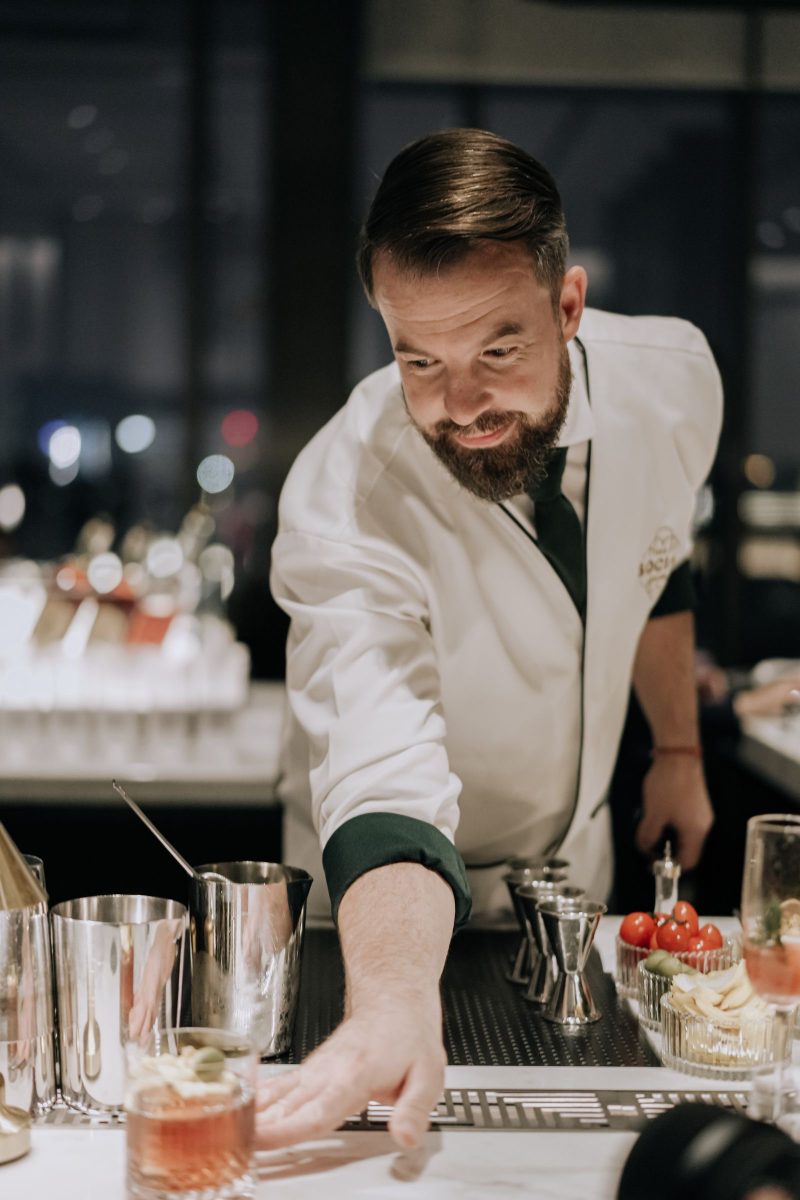
Philip stayed at Hotel Amano for five years. It was during this time that he started to travel overseas extensivly and fostered lots of connections as the hotel ‘was like a living room for everyone’ during Bar Convent Berlin. Then he visited Thailand, China, Indonesia and Singapore in 2014 and found the trip eye-opening. All of a sudden, he found himself applying for the lead role at Manhattan at Regent Singapore the next year and landed the job. Together with a dedicated and passionate team, he built Manhattan into one of the finest bars in the world which took the No.1 spot at Asia’s 50 Best Bars in 2017 and 2018.
Now, everyone knows Philip as the face of BKK Social Club at Four Seasons Hotel Bangkok, one of the most internationally renowned destination bars in the vibrant city. He also oversees mixology training and drink menues at the group’s hotels across the region as Beverage Ambassador for Four Seasons Hotels and Resorts Asia Pacific.
To celebrate the opening of Four Seasons Hotel Suzhou in China, Philip recently visited the hotel and did two guest shifts with senior bartender ‘Co’ Pasavut and senior server ‘Tookta’ Phetcharin at its lobby bar The Lounge and Bar. In an exclusive interview with DRiNK, he revealed what the process for creating the menu at BKK Social Club is like, the serect for buidling a strong team and why it is impossible for him to recommend only three bars in Bangkok.
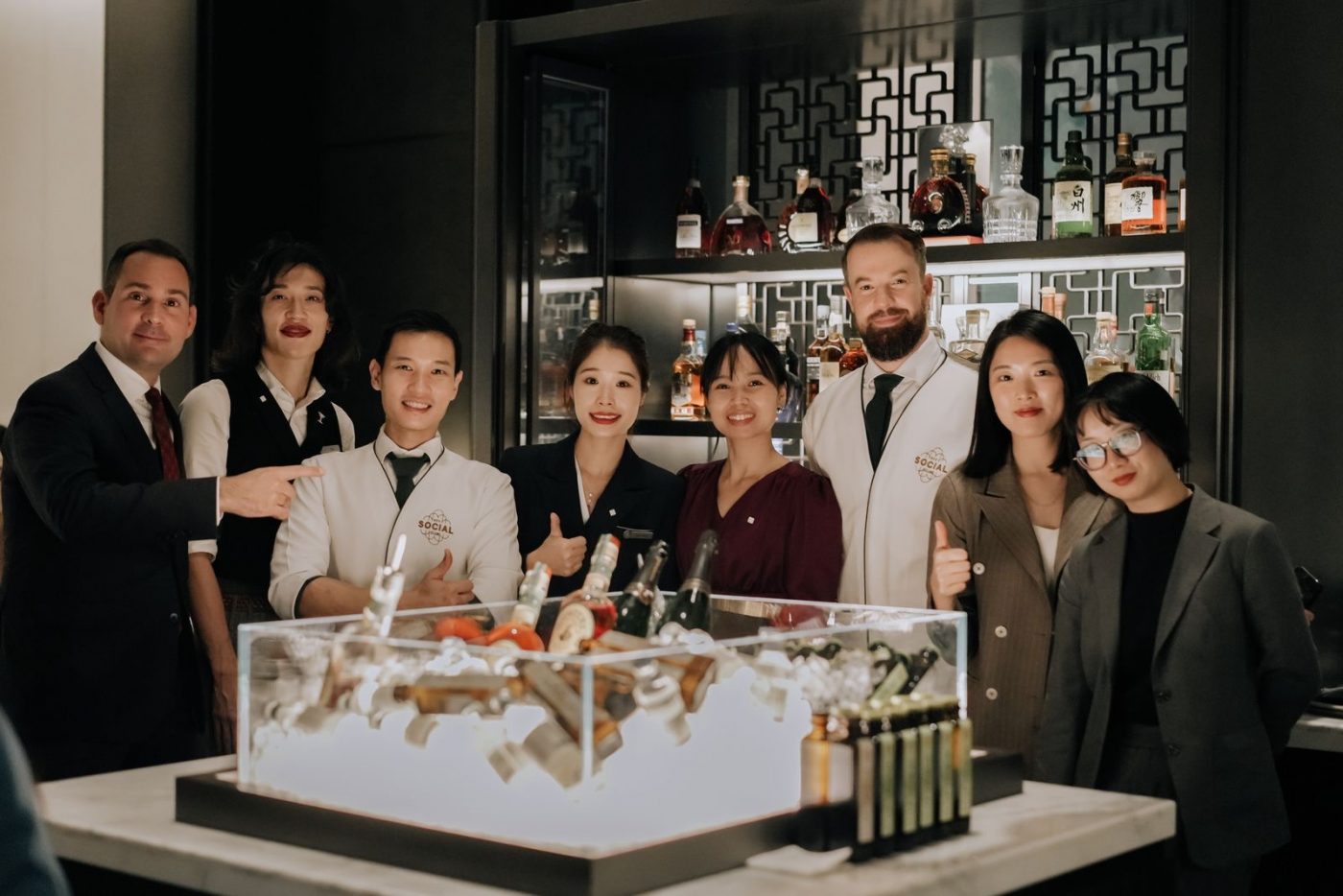
DRiNK: What’s the inspiration for the cocktail menu at BKK Social Club?
Philip: So far we just launched one and had a little bit update twice. It’s an Argentinian menu which comes from the design inspiration. When AvroKo, the designer of the venue, pitched to the ownership and introduced the design concept, it was a 1920s Art Nouveau Argentinian design. If you look at it now, you see the hints where it comes from. But it’s also a timeless design. The place could be anywhere in the world. It could be in London, New York, Suzhou or Shanghai, which makes it actually easy in the future to tell different stories. But what we wanted to do is like, ‘okay, if the design inspiration is Argentine, why not also bring the first culinary journey from that far away? ’
So our main goal was to attract the local community, literally people who live in Bangkok, because you can’t rely only on hotel guests or tourists. You want a base community that lives in the city. And we thought how to achieve that was to bring something or some flavors to the market that were not common. So we looked into Argentinian drinking culture and culinary experiences. There are some similarities with Thai in terms of flavors but also in terms of drinks heavy European influence. So it allows us to play with amaros, with vermouths, with any kind of spirit. Friends like Tato [Renato Giovannoni] created their own gin – Principe de los Apostoles, so we brought that and a couple of other Argentinian spirits and wines to emphasize on the concept. And so far – touching wood – it went quite well.
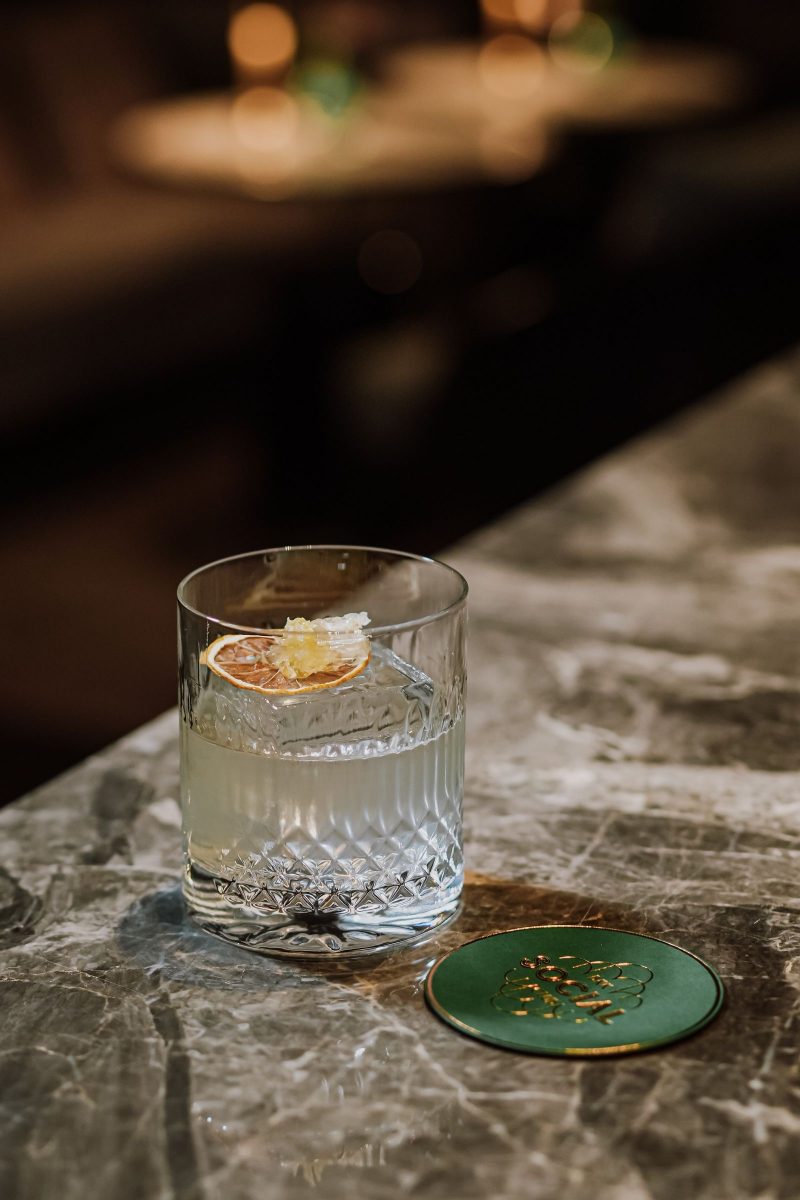
Now it’s about time to change and the new menu will be Mexican inspired. Just seeing that it’s a contemporary or current trend – mezcal, tequila – in our part of the world here, they’re still things to explore. Also you can educate but not lecture people. I think there’s always fun and joy in doing so. And it allows us to bring some new flavors to the table. Also for the kitchen, great opportunity to have some new things to showcase. The entire Mexican cuisine is similar [to Thai] in terms of flavor – spicy, flavorful, rich, colorful. So it will help me to continue the storytelling.
DRiNK: How is the process like? Is it a team effort when you work on a menu?
Philip: In general, everything is a team effort. Of course someone has to start. Like in the kitchen, the chef starts to write ideas, but the team is there to execute. So was the same for the Argentinian menu. I had my head around it, wrote most of the recipes and then along the way when it came down to finalizing included or involved the team. Most of the drinks stayed, but there was one or two drinks like, ‘okay how do we balance it out?’ And that helped me to understand where everyone was in terms of flavor or palate.
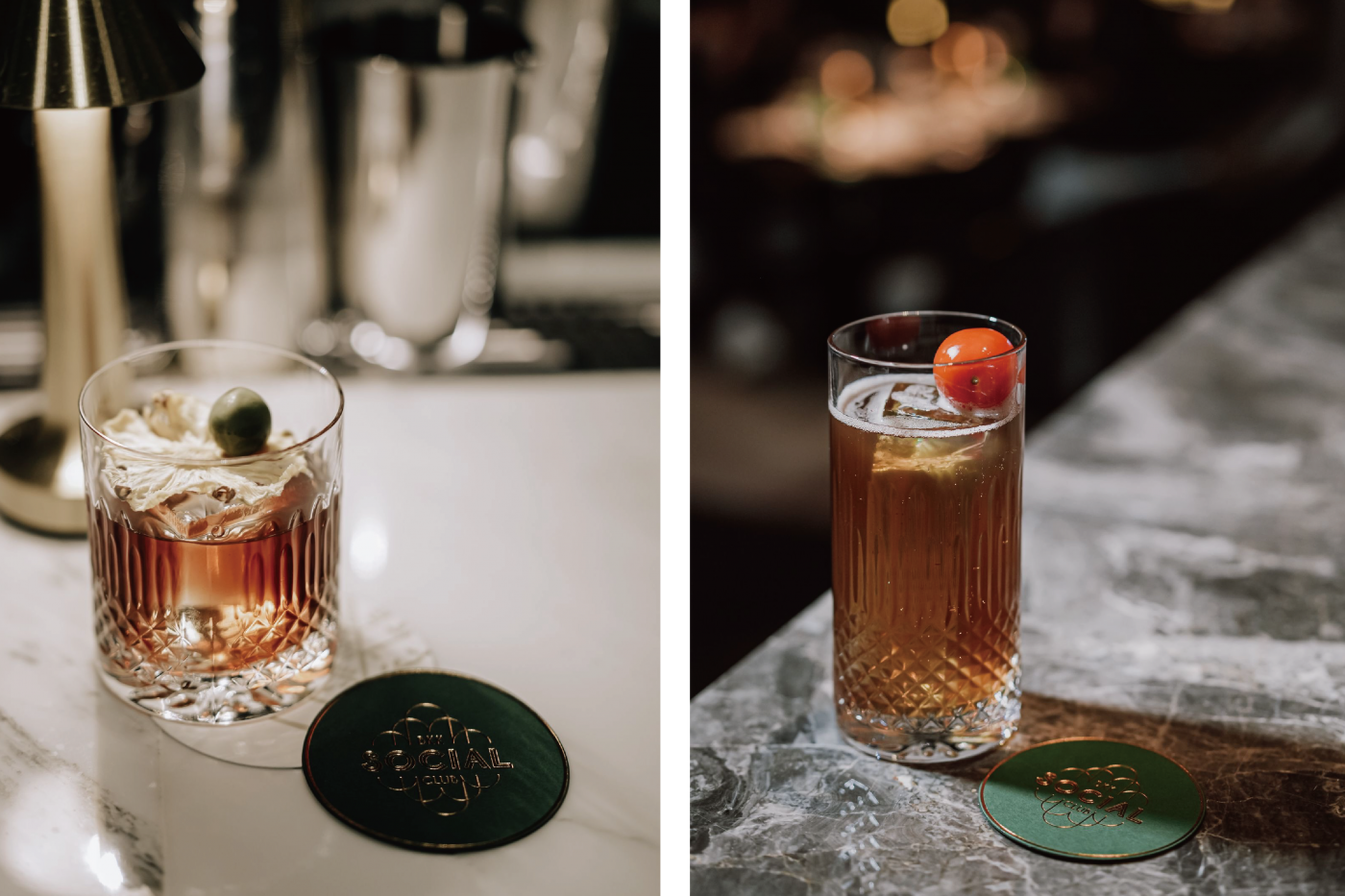
If you’re a new group in a new country, you kind of have to test the water or check the temperature first. Where’s everyone’s palate? Because over the years I’ve developed certain understanding for balance which is the key to the way I look at drinks. Is it the right or wrong way? I don’t know. But if guests appreciate it, then I think we are on the right track. But every market is different, so it’s about understanding if what we do is the right thing or if we have to really play for the market. We try to find a balance for it and balance is really the key. And then the team understood and quickly developed and adjusted ideas, so we found a good balance for the menu. People seem to enjoy the drinks.
For the updates of the menu, it was mainly the team contributing and developing ideas. And now for the new menu, I have one or two ideas that I would love to see in the menu; the rest comes from the team. And of course it’s about empowerment and development. I think many of us are now at the stage where if you involve the team, the ownership and pride in serving and showcasing the menu is much different. I think it’s something that we shall continue.
If you want a destination bar, it comes with commitment – programming, investment, identity, storytelling, talent
DRiNK: This is the first time I’ve seen a senior server featured on the guest shift flyer. Why is that? Guest shiftsare usually all about bartenders…
Philip: Because it’s about the team. Also it’s having the pleasure and the honor in the last couple of years to be someone to represent an outlet or a bar or a hotel. Of course it’s great, but I’m not doing the work alone. And I think those tools of guest bartending for exposure should be for the team. I can come and make all the drinksby myself in the evening, but I don’t have a chance to engage with anyone. But if you wanna showcase what you do, it’s great if you’re two people or ideally with a third one – someone on the floor who can also help to explain the drinks and tell a little bit about Bangkok. Guests expect the bartender to make the drinks. If the bartender is on the floor, who’s making the drinks?
But that’s our thinking. Does it work all the time? No. It’s not always possible to bring so many people. But when there is a chance, I just would love to continue doing so. Because it’s a team effort even at home. The bar makes drinks, but the service serves them and they are sometimes in much deeper and more intense interactions with the guests. Because the bar still has the bar – a barrier, like a safe zone whereas the service is immediately one to one with the guests. I feel it’s a crucial part of experiences in general and it’s a greatopportunity for the team to see why we do what we do at home, for them to experience service as well, to experience different communities, to make friends, to learn and to grow.
I think our industry allows us to grow as human beings because of the incredible opportunities to connect with people not only in our own country, but also outside or in different cultures. I think that just helps you to mature in one way or the other. That’s why I’m grateful for opportunities like this. As long as I have the chance, I love to share and to involve everyone. I mean I want at some point that everyone of the team has a chance to travel. We’re a fairly big team – some younger, some more mature, but I believe we will have numerous occasions or opportunities to do that and it’s not the first time that we do it. I think it helps to elevate the experience. This is really a coin where there’s a lot of win-win.
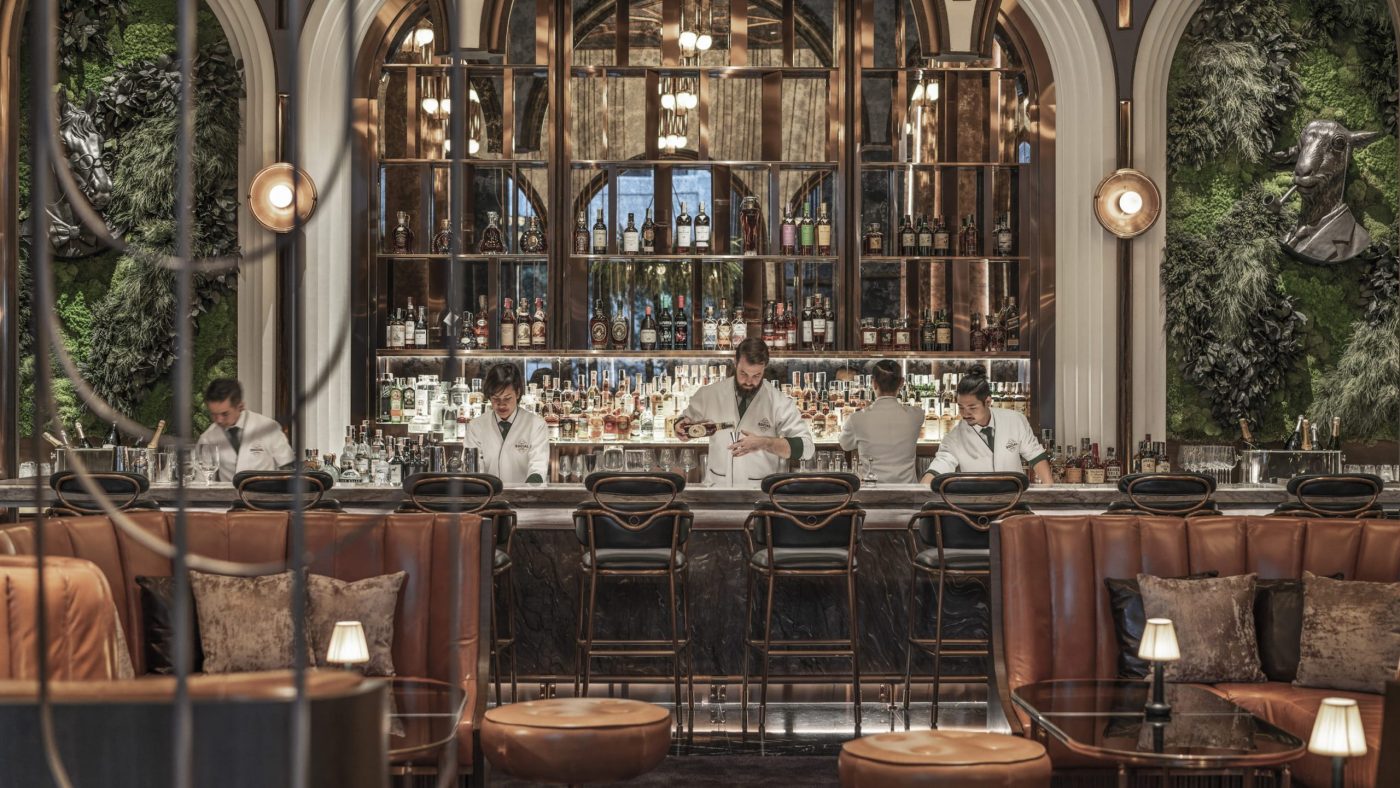
DRiNK: What makes for a good hotel bar in your opinion?
Philip: It’s a good question. If we would know the answer, I think everyone would like it. I think as a hotel, you have to understand what your hotel is like and what you really want. I think now we are at a tipping point where it’s between a destination bar and a lobby bar. Also do I want a destination bar like I want a fine dining restaurant or a destination restaurant? If you want that, it comes with commitment – programming, investment, identity, storytelling, talent. You have to hire the right people to do that. Or a destination bar potentially needs a different skill set than the lobby bar where you cater all-day dining needs, whereas in the destination bar maybe you focus on evening service. But then of course, Four Seasons as a brand has become more and more renowned for restaurants and bars. Now it’s our obligation to make sure everyone who works for us has a certain skill set, so we have to provide access to knowledge and career opportunity.
But back to the question, it’s also about understanding the people’s needs of course. Like here [Four Seasons Hotel Suzhou] in the lobby, maybe different needs than if we would have also a signature bar here. A menu, in some sense, should have a little option for everyone. So it should be more customer-focused than craftsman-focused. But back to the first thing that I mentioned, if you want to have a destination bar, it comes with commitment from all ends. I think that’s a secret to more successful places in general. It’s a joint effort. It needs everyone.
As long as I have the chance, I love to share and to involve everyone. I mean I want at some point that everyone of the team has a chance to travel
DRiNK: Next question is actually about team building. What’s your secret for building a strong bar team?
Philip: I think in general it’s about the people themselves. I think empowerment is as important as guidance and the big thing is the power of why, like trying to explain why we do things, not assuming everyone knows the same as we know or as a leader knows.
I made those mistakes. I assumed that everyone wanted the same, but I never asked. Then I was walking, but at some point no one was with me. Everyone was at a different pace and I understood because I didn’t explain. So when I made those mistakes back in Germany, I said to myself, ‘if I move to a different part of the world, the last thing I wanna do is not to listen and not to understand. ’ So when I moved to Singapore for instance, the first thing I did in the first two months was just observing, getting to know every individual within the team and trying to see how everyone worked before sitting down and saying, ‘this is where we could go for this, we shall do this and how about this?’
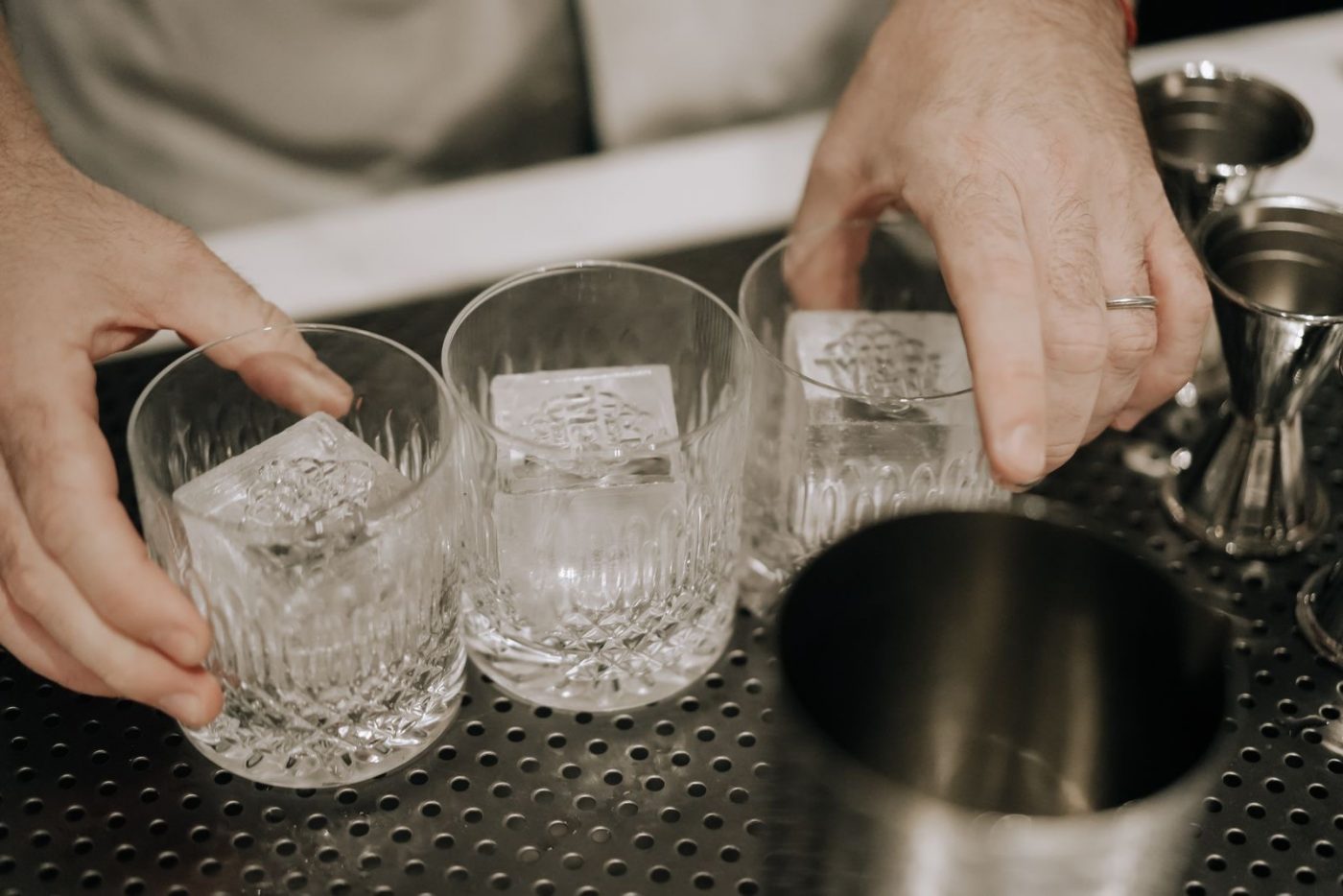
So over the years, it’s more like I suggest ideas. Of course sometimes you have to say ‘that’s the way’. That’s also expected from someone if you are put in a role as a manager or a leader. People want and need guidance, but it’s about how you transmit the information or the guidance. It’s a lot about the voice, the tone, the way you express yourself. There are moments where you have to kind of say, ‘okay, that’s the way.’ But in general, I believe in team and teamwork and empowerment and decisions made as a group. If you buy in as a group, the chance for success is much higher than if someone says this is the only way we can do it.
But of course, sometimes you let people go first and then you adjust the weight. But if I raise my voice, everyone knows something is for real. At least over the years that has been the case. Some say it’s a weakness and sometimes I agree. Sometimes I could maybe be a little bit more direct. But I still believe that if I can’t be friends with everyone, I can still be respectful and polite to everyone. I believe in what goes around comes around. Also it’s Four Seasons’ golden rule – treat others as you would like to be treated. But I had that in my mind long before.
We make mistakes and skills we can teach but when hiring I look for attitude. If I can see that you have a genuine smile and you understand that we are in a serving industry and you’re okay to say ‘please’ and ‘thank you’ and open the door, then we have common grounds. You don’t need to know everything about whisky or gin. It helps but those are things we can teach. We hired people from retail. They never carried a tray before and became some of the best service. So I look more into those things. Of course if you want to provide five-star service in a hotel, ideally a certain skill set is preferable beside an understanding. But sometimes you hire a great character and you teach.
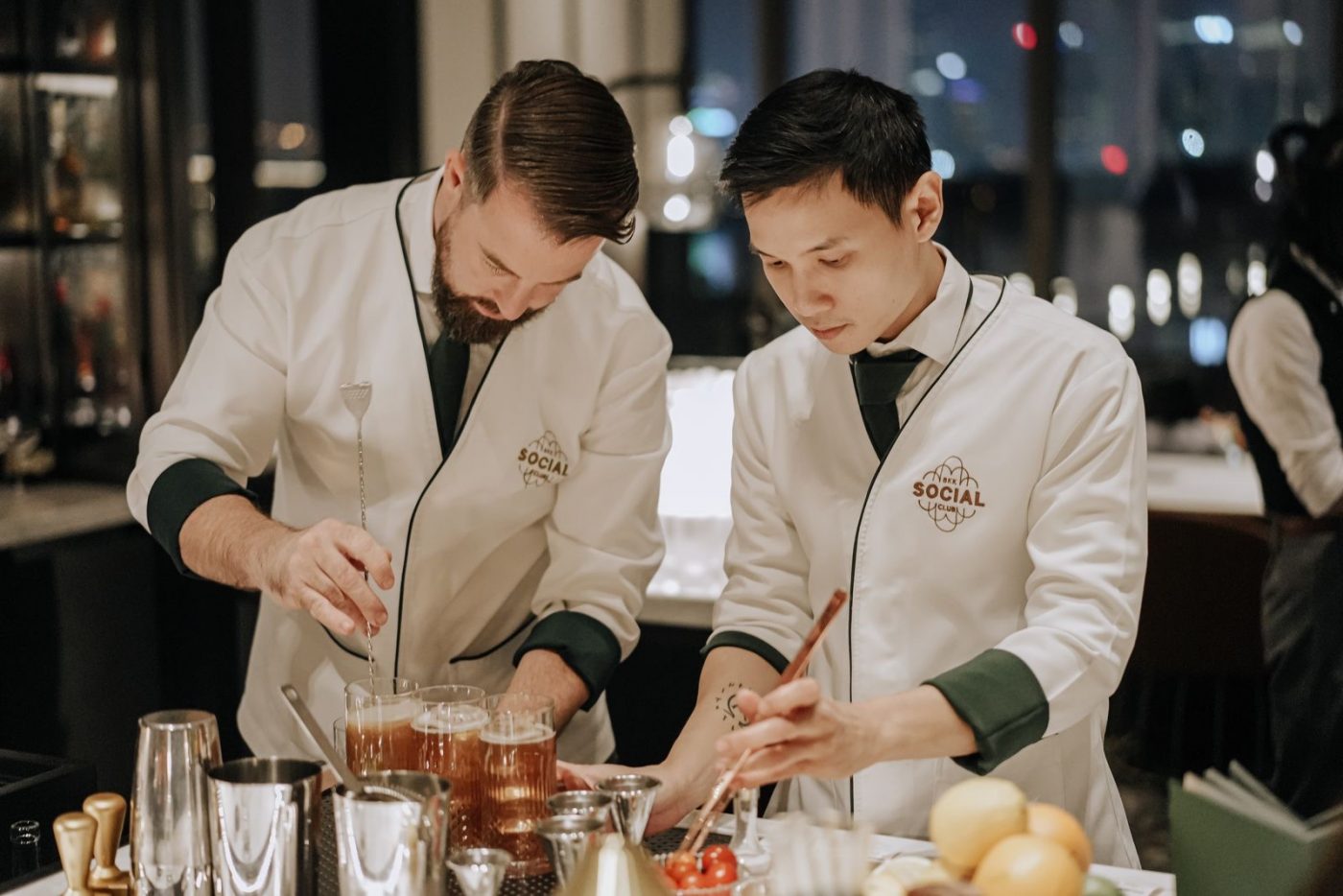
DRiNK: Bangkok’s bar scene is getting more and more global recognition. How has it evolved in your eyes since you got there?
Philip: In Bangkok, let’s say pre-pandemic and post-pandemic. I think we’re talking about almost 40 million tourists before the pandemic. Of course it was constantly buzzing. Everyone was there for street food, easy nights out and affordable establishments. And of course over the time, more and more craft bars opened up – a lot around local flavors, some great executions, some normal executions…And I think throughout the pandemic, unfortunately and maybe fortunately one or two concepts closed down.
I think the real post-pandemic increment was in execution and attention to details. Craftsmanship has improved a lot. Investment in quality, glassware, ideas, menus, textures…Lots of places that were open before changed approach a little bit or evolved a lot. I feel now there is much more thoughts behind intention to deliver great experiences. Of course everyone does it at their own capability. Not everyone has the same resources as a hotel has eventually. Or some free-standing bars has more resources, some have less. But everyone now has more and more great intention to great service.
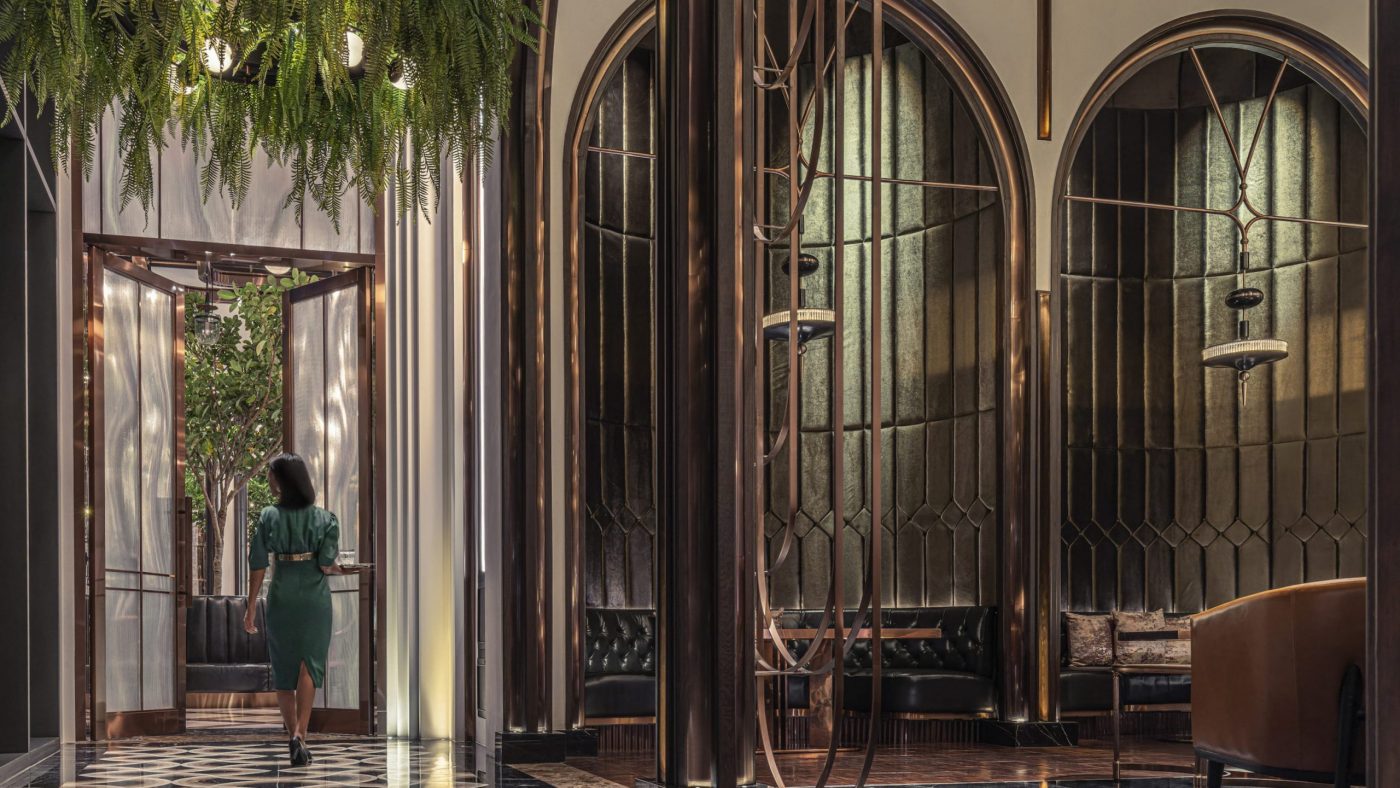
Menus – most of them have concepts or all of them have concepts. There’s a lot more storytelling to it and you can see that lots of bartender-owned bars are coming. Restaurants evolve their drink offering. So it’s an amazing momentum to be there. Same with hotels. Now you have Four Seasons, you have Mandarin Oriental, but you have also Rosewood. All those hotels have great hotel bars. So it’s just nice to see an evolution.
And still Bangkok is that buzzing place. Very diverse. Also it’s super spreadout. So one day you explore this area, one day you explore this area…And I think the community became bigger. Before the pandemic, maybe it was a little bit closer. But overall it’s still a massive community in touch with each other. Everyone is working towards being recognized as a community and as a destination. The more the merrier. The more great places there are, the more people come to explore everything. And I think there are bars and restaurants for everyone, so it’s just great to see.
I made those mistakes. I assumed that everyone wanted the same, but I never asked
DRiNK: What is driving this evolution in your opinion?
Philip: I think it’s the drive and entrepreneurship. Some people have worked for the longest time in groups and now they say, ‘okay, now it’s time to open my own. ’ Some have already bars but they say, ‘okay we have this style of bar, but I think we want to also run this style of bar. ’ So I think entrepreneurship is one thing that drives that process, which is great.
We have talent in town and in the country, but it also attracts talent from outside. Lots of people would love to come to Bangkok right now and explore Asia. Bangkok is different than Shanghai, Beijing, Hong Kong or Singapore. It’s a different part of Asia, but it’s a nice stepping stone into this part of the world. So I think that hole creates that drive to evolve constantly.
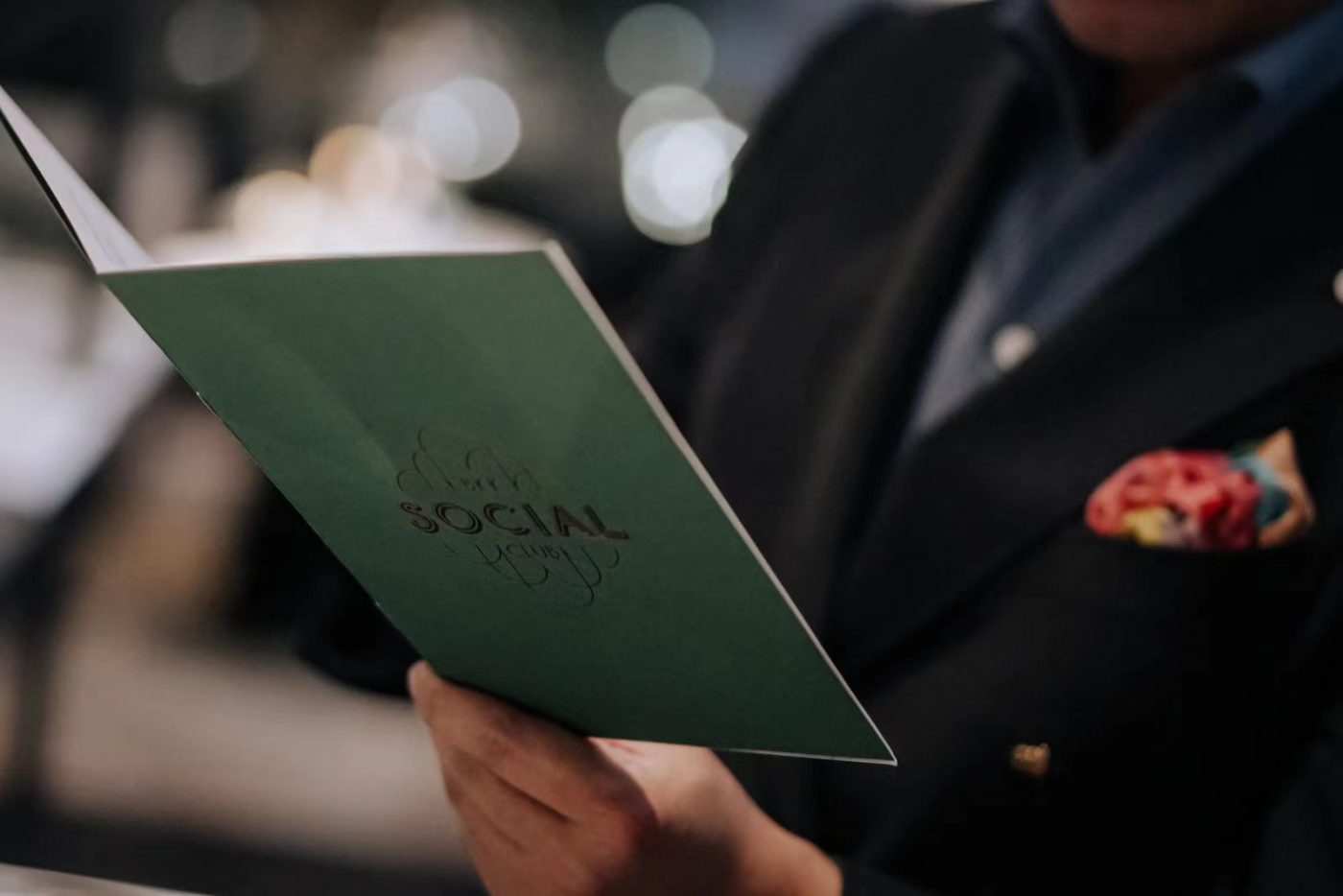
DRiNK: But would you say there’s an inbalance of development between Bangkok and the rest of Thailand?
Philip: I haven’t been to Chiang Mai for the longest time but I know that there are also good bars. And if you look at regional or local cocktail competitions, there are bartenders from Chiang Mai, Samui and Puket. Thosemajor destinations within Thailand, they also continue to grow and develop. You have lots of talents from other cities coming to Bangkok, but at some point they go back and open their own place or help someone to open.
But of course Bangkok, because of its strategic location – it’s where most of the people fly in – attracts the most traffic. Hence the most bars and restaurants. But destinations like Puket and Samui grow. Chiang Mai has a super strong culture of cafes and restaurants and now more and more bars, and you come across talents from there as well. It’s just that tourists are likely to get exposed to Bangkok on social media much more than to Chiang Mai, so hence that’s the perception from outside. Of course all eyes are on Bangkok and Bangkok is the driving force, but I think it kind of ignites fires within Thailand.
It’s a massive community in touch with each other. Everyone is working towards being recognized as a community and as a destination
DRiNK: The last question might be a little tricky. If you can only recommend three bars in Bangkok, apart from your own bar of course, what would they be?
Philip: It’s super difficult because there are so many new things happening…Okay, because we’re neighbors, I love Tropic City. It just got that casual cool. I usually go after work for a Highball or two. If you say under-the-radar bars, then definitely Ku bar. I’ve been there recently for the first time and that’s definitely a hidden gem. Niks [Anuman-Rajadhon] from Teens of Thailand also. I love Asia Today. He just opened a place called G.O.D. I had a sneak peek recently and will definitely go back.
And then…Vesper is a classic. Tom [Hearn] is doing great. And they opened a place called 4th Wall. Love that, but it’s new so I think it needs some time. Filippo [Sanchi], a good friend of mine. He used to be in Guanghzou. He runs Lennon’s and he does a great job. What do we have? Bar Us – they are doing a great job.
But then I love cocktail lounges like Rimshot. You go there for Highballs but it’s so much fun. And Vipop [Jinaphan] is running several venues; he’s an amazing entrepreneur. So Find The Locker Room…And Find The Photo Booth – new location, very forward-thinking because it’s in an upcoming residential area with new business development. Maybe a month or two ahead of the time. Maybe a year. But it will be super successful because the area is upcoming.
Everyone I didn’t mention I don’t forget. There are classics like Rabbit Hole and other hotel bars like Firefly. You can go on and on and on. So don’t pinch me on three bars. In this case I love to be Switzerland and neutral!


